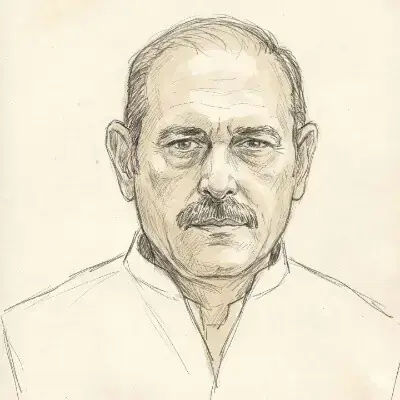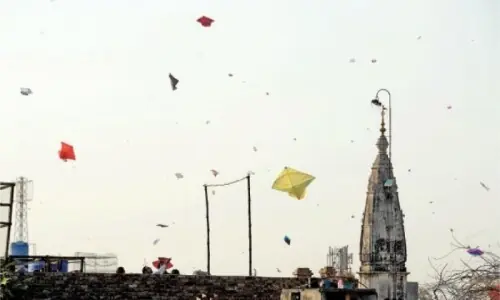PESHAWAR, Oct 13: New facts have emerged about this year’s September 5 deal between the government and militants in North Waziristan that may explain the unease felt by international players involved in the conflict in Afghanistan. Although the agreement secured the public endorsement of US President George W. Bush, western and Afghan officials are privately critical of the deal.
Sources say there are a number of factors fuelling suspicion. Firstly, the deal was signed with militants and not with tribal elders, as is being officially claimed. The signatories are the two principal parties to the conflict: (a) the administrator of North Waziristan as the government representative, and (b) militants and clerics who until September 5 were on the wanted list. Among them are Hafiz Gul Bahadar, Maulana Sadiq Noor, Azad Khan, Maulvi Saifullah, Maulvi Ahmad Shah Jehan, Azmat Ali, Hafiz Amir Hamza and Mir Sharaf.
The first two in the list are top militant clerics and the remaining six were nominated by them to co-sign the agreement, sources say, adding that they were all pardoned by the government subsequent to the deal. The agreement identifies them as ‘fareeq-e-doum’ (second party). As the names indicate, no tribal elder from the Utmanzai tribe was among the signatories, as claimed by the government. The 45-member inter-tribal jirga handpicked and nominated by Governor Ali Muhammad Jan Aurakzai countersigned the document as the interlocutors. Period.
As such the argument that the peace agreement is against the Taliban, and not with the Taliban, just does not hold water. One expert asks: “How could the militants in North Waziristan, who owe their allegiance to Mullah Omar and his commander Jalaluddin Haqqani, who is responsible for southern Afghanistan, sign a deal against their brothers in arms?”
Secondly, the deal stipulates that foreign militants living in North Waziristan would either leave or live peacefully. But no mechanism has been put in place to oversee and verify either their conduct or the departure of those who violate the agreement. Over a month after the signing of the deal, there is no progress on this front.
Contrary to the government’s assertion, troops deployed in and around Miramshah, except those manning the borders, have been removed from check-posts and relocated to their camps. All weapons seized from militants have been returned and their men released.
There have been more kidnappings, robberies and murders since then as the Khasadar force — a ragtag, untrained tribal force left to man the posts — has neither the teeth nor the wherewithal to rein in the militants or control crime, area residents point out.
Eyewitnesses say there are now not one but two Taliban offices in Miramshah to maintain law and order, control crime and address public complaints, a serious violation of the agreement by the Taliban who had undertaken not to form a parallel administration in the tribal region.
There is growing evidence that militants are now more assertive than they were before the September 5 agreement. Recently they wrested custody of suspects, along with a vehicle the latter had snatched, telling the Khasadars that they would deal with the suspects themselves. Nothing is known as to what happened afterwards as the hapless Khasadars merely looked on.
The agreement says that there will be no cross-border infiltration but Nato military officials stationed in Afghanistan have been quoted as saying there is a 3oo per cent increase in militant activity in the border regions. The death of a local militant commander, Maulvi Mir Kalam, and his men in an operation across the border and the capture of 10 of their comrades by security forces is a case in point.
The deal also stipulated there would be no targeted killings but recent reports indicate that alleged spies have been assassinated by militants in the region.
In essence, there are two main verifiable clauses in the agreement: one, that the militants would not attack government forces and installations and, two, that the government, for its part, would not undertake any ground or air offensive. That the two sides have stuck to their word on at least these two points explains the relative peace in an otherwise volatile tribal region.
Equally crucial and perhaps central to this whole agreement were the two other clauses, the presence of foreign militants and cross-border infiltration. It is unclear what additional steps the government has taken to stop militants’ movement across the border since the truce. But if the death of Mir Kalam and the reported arrest and subsequent release of three ‘mujahideen’ in the Kurram tribal region — at the request of militants in North Waziristan — are any indication, the government will find it hard to defend its position that the truce is directed against the Taliban and not in their favour.
Indeed, peace is the desired goal. But one look at the agreement and the situation on the ground and it is glaringly evident that the government has chosen the path of pacification by appearing to capitulate to the militants than take corrective measures to ensure lasting peace. Peace is vital but not at the expense of abdicating state authority, as appears to have happened in Waziristan’s case. Therefore, when President Musharraf said at a recent gathering that “there is no guarantee that it [the agreement] will succeed”, it was pretty clear why.
Given the complexity of the situation, and to be fair to the president, it should be mentioned that Gen Musharraf also said that if anybody had a better idea of how to deal with the situation, he would be a patient listener.
But he is not the only player in the region, however critical his role in the war on terror may be. On cross-border infiltration, Kabul is being joined in its complaints by the International Security Assistance Force (ISAF). With a growing Taliban insurgency and mounting casualties being taken by the 37-nation Nato-led ISAF, Pakistan is coming under a lot of pressure to do more.
Islamabad may be asking Nato and Kabul to replicate the peace pact with the Taliban in Afghanistan but it will be difficult to push this argument along — as Pakistan has sought to — by citing considerations of Pushtun nationalism and a possible sense of deprivation.
Half of the Afghan parliament is Pushtun, and except for foreign minister Rangin Dadfar Spanta and interior minister Zarar Maqbal, Pushtuns hold all the powerful positions in the cabinet. President Hamid Karzai is, of course, also a Pushtun. They are also fairly well represented in the Afghan National Army and the Afghan National Police, so to suggest that Pushtuns face alienation in Afghanistan would be a misrepresentation of the ground realities in that country. The days of the Tajik-led Northern Alliance’s dominance are over.
Indeed, Pakistan would do well to avoid using the ethnic card. It is a double-edged weapon that can cut both ways, considering the growing sense of deprivation amongst the smaller provinces at home.
It would also be unfair to liken the Taliban’s resistance to a Pushtun uprising. This view betrays a lack of understanding of contemporary Pushtun society. Ethnic Pushtuns they are, but the Taliban have never espoused any nationalist ideology. Theirs is not a nationalist struggle; their resistance is fired by a desire to wage ‘jihad and defeat the infidels’.


































